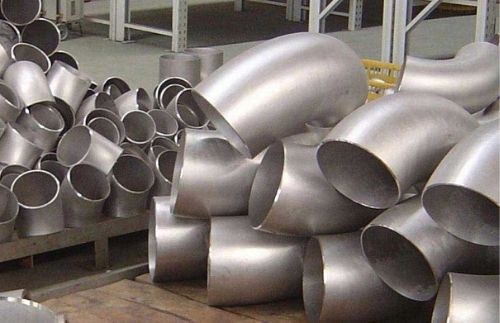
In the intricate world of automotive engineering, every component plays a crucial role in ensuring optimal performance. Among these components, the torque converter stands out as a vital element in automatic transmission systems, particularly in the context of 68RFE transmissions. Understanding the functionality and significance of torque converters is paramount for enthusiasts and professionals alike. In this guest post, we delve into the depths of torque converters within the framework of 68RFE transmission systems, shedding light on their mechanics, operation, and importance.
Unveiling the Torque Converter:
At the heart of an automatic transmission lies the torque converter, a hydraulic device tasked with transmitting power from the engine to the transmission. Unlike manual transmissions, where a clutch is employed for power transfer, torque converters operate on fluid dynamics principles. This ingenious mechanism allows for seamless gear changes without the need for manual intervention, enhancing driving comfort and convenience.
The Components and Operation:
A torque converter comprises several key components, including the impeller, turbine, stator, and lock-up clutch. The impeller, connected to the engine, initiates fluid circulation within the converter housing. As the fluid flows, it drives the turbine, which, in turn, transfers rotational energy to the transmission input shaft. The stator, positioned between the impeller and turbine, redirects fluid flow to optimize torque multiplication during acceleration.
Significance in 68RFE Transmission Systems:
Specifically designed for heavy-duty applications, the 68RFE transmission system is a staple in modern trucks and commercial vehicles. In such applications, torque converters play a pivotal role in managing power delivery and optimizing efficiency. The robust construction of 68RFE torque converters ensures reliable performance under demanding conditions, making them indispensable in towing, hauling, and off-road scenarios.
Enhanced Efficiency and Performance:
One of the defining features of torque converters in 68RFE transmission systems is their ability to enhance efficiency and performance. Advanced designs, coupled with precise engineering, enable these converters to deliver smooth power delivery across a wide range of operating conditions. Whether traversing rugged terrain or navigating urban landscapes, drivers can expect consistent performance and responsiveness from their vehicles.
Adaptability and Versatility:
Another aspect that sets torque converters in 68RFE transmission systems apart is their adaptability and versatility. Through innovative design enhancements and technological advancements, these converters can cater to diverse driving preferences and requirements. From towing heavy loads to cruising on highways, they seamlessly adapt to varying torque demands, ensuring optimal performance across different scenarios.
The Evolution of Torque Converter Technology:
Over the years, torque converter technology has evolved significantly, driven by advancements in materials, manufacturing techniques, and computational modeling. This evolution has led to the development of high-efficiency torque converters with improved lock-up mechanisms, reduced slippage, and enhanced durability. As a result, modern 68RFE transmission systems benefit from heightened efficiency, reduced fuel consumption, and extended longevity.
Challenges and Solutions:
Despite their remarkable capabilities, torque converters face certain challenges, particularly in high-performance applications. Issues such as overheating, fluid contamination, and slippage can impact performance and reliability. However, ongoing research and development efforts continue to address these challenges, introducing innovative solutions such as improved cooling systems, enhanced friction materials, and advanced fluid formulations.
Conclusion:
In the realm of automotive engineering, torque converters play a vital role in ensuring the smooth and efficient operation of automatic transmission systems, especially within the context of 68RFE transmission. By understanding the mechanics, operation, and significance of torque converters, enthusiasts and professionals alike can appreciate their role in enhancing vehicle performance, efficiency, and reliability. As technology continues to evolve, torque converters will undoubtedly remain at the forefront of innovation, driving the future of automotive transmission systems forward.
Delving Deeper into Torque Converter Dynamics:
To truly grasp the intricacies of torque converters within 68RFE transmission systems, it’s essential to delve deeper into their dynamics and the underlying principles governing their operation.
Torque Converter Efficiency:
Efficiency is a critical factor in the design and performance of torque converters. Traditional torque converters often experienced efficiency losses due to fluid slippage, especially during low-speed, high-torque conditions. However, advancements in converter design, such as the implementation of lock-up clutches and improved fluid coupling technologies, have significantly enhanced efficiency in modern systems.
Lock-Up Clutch Mechanism:
The introduction of lock-up clutches represents a notable advancement in torque converter technology. These clutches engage at higher speeds, effectively locking the turbine and impeller together, bypassing the fluid coupling mechanism. By eliminating slippage, lock-up clutches reduce power losses and improve fuel efficiency, particularly during highway cruising.
Fluid Dynamics Optimization:
The fluid dynamics within torque converters play a crucial role in determining their efficiency and performance characteristics. Engineers meticulously design the internal passages and vanes to optimize fluid flow, minimizing turbulence and maximizing torque multiplication. Computational fluid dynamics (CFD) simulations and real-world testing enable engineers to fine-tune these designs for optimal performance across various operating conditions.
Heat Management Strategies:
Heat management is another area of focus in torque converter design, particularly in heavy-duty applications like the 68RFE transmission system. Excessive heat buildup can lead to fluid degradation, reduced efficiency, and premature component wear. To mitigate these issues, engineers employ advanced cooling strategies, including integrated transmission fluid coolers, thermal management systems, and heat-resistant materials.
Balancing Performance and Durability:
Achieving the right balance between performance and durability is paramount in torque converter design. Components must withstand high torque loads, thermal stresses, and mechanical wear while delivering responsive performance and smooth operation. Through advanced materials selection, finite element analysis (FEA), and rigorous testing protocols, engineers ensure that torque converters meet the demanding requirements of 68RFE transmission systems.
Adaptive Control Systems:
Modern vehicles equipped with 68RFE transmission systems often feature sophisticated electronic control systems that optimize torque converter operation based on driving conditions and driver input. These adaptive control systems continuously monitor parameters such as engine speed, vehicle speed, throttle position, and load demand to adjust shift points, torque converter lock-up engagement, and fluid pressure accordingly, maximizing performance, efficiency, and drivability.
Future Directions in Torque Converter Technology:
As automotive technology continues to evolve, torque converter design and development are poised to undergo further advancements. Emerging trends such as electrification, hybridization, and autonomous driving present new challenges and opportunities for torque converter engineers. Integrating torque converters with hybrid powertrains, optimizing efficiency in electric vehicles, and enhancing compatibility with autonomous driving systems are areas of active research and innovation.
Conclusion:
In conclusion, torque converters are integral components of 68RFE transmission systems, playing a crucial role in power transmission, efficiency optimization, and overall vehicle performance. Through continual innovation and refinement, torque converter technology has evolved to meet the demands of modern automotive applications, delivering enhanced efficiency, durability, and drivability. As automotive engineering continues to push the boundaries of performance and sustainability, torque converters will remain at the forefront of innovation, shaping the future of transmission systems in vehicles around the world.






